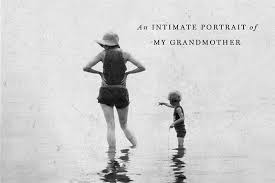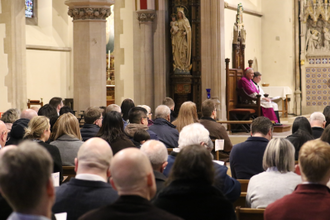Book review: The world will be saved by beauty

Dorothy Day. An intimate portrait of my grandmother by Kate Hennessy - Published 2017 by Simon and Schuster
I must start with a confession. For over 50 years I have been greatly influenced by this great American Catholic. The spell began when her friend and mine, Bea Brickey introduced me to Dorothy's writings. The link was cemented when in 1969. I had the privilege of listening to this tall gaunt woman dressed in black, urging her audience to get serious about their Christianity.
Dorothy is described by some as the greatest American Catholic of the 20th century. Her critics will counter that she was a 'leftie commie'. It was this last label offered by my parish priest which first sparked my interest. Bear in mind I was a young impressionable man at the time but somehow I parked my prejudice and as they say the rest Is history.
To Kate's book: The author explores the life of both Dorothy and her only daughter Tamar. What grabbed my attention was the declaration often repeated in the book that Dorothy was no plaster cast saint, i.e. a person whom we could never hope to emulate or even imitate. Hennessy paints a picture of a flawed, conflicted human being who after an early bohemian life decided, with promptings, to join the Catholic Church and take her faith seriously. This meant getting down and dirty with the poor, forgotten and smelly outcasts of the New York of the 1930s. The obstacles she encountered in seeking to realise her vocation, not least from the leaders of the Catholic Church, were formidable. These same people were aware that among the outcasts she befriended were a number of priests whose lives had just crumbled. Nobody else was there for them except Dorothy and The Catholic Worker. This last was the name of the setup, organisation would be too fancy a description, and of the paper which was sold for one cent a copy and continues at the same price today.
Tamar was her only daughter, the product of a liaison with a young man whom Dorothy ultimately had to give up. He was a non believer and she made a very painful decision to choose Catholicism rather than him. They still kept in contact down the years and practically on her death bed he pleaded that they resume their relationship. As a young child Tamar lived in the Catholic Worker house in New York, not exactly the ideal setting for a youngster. Her mother was often on the road, giving talks and seeking to raise money to keep the house going. The daughter married young to a gentleman who had his own troubles, not least he was not enamoured of Dorothy's life choice. They raised, or more precisely Tamar raised, nine children, two of whom died before her and most had fallen away from the faith despite the efforts of their formidable grandmother. Daughter and mother had an uneasy relationship. Dorothy was outgoing, an eloquent communicator and a formidable advocate for what she believed in, Tamar was more introverted, loved the land and all that was associated with it. Tamar, for much of her life was uncomfortable with Catholicism and late in life she signalled that she had left the faith, with feelings of liberation and freedom. Dorothy while deeply loving her daughter and her family, was conflicted between loyalty to her biological family and the waifs and strays who constituted the Catholic Worker. This conflict, plus many others, including battles with the New York City authorities who wanted to close down the operation on a number of occasions, caused Dorothy great suffering and probably contributed to her deep feeling that fundamentally her life was a failure.
Here was a woman who campaigned all her life for often unpopular causes, e.g. she opposed America's entry into the Second World War, refused to vote, yet saw one of her grandchildren go to fight in Vietnam. For most of her life she was a very devout Catholic, praying several times a day and going to daily Mass, though she was often irritated by some of the inane sermons which she was forced to listen to. Faithfulness and perseverance were the main characteristics of her faith.
In summary, want to meet a modern saint, warts and all, then get hold of this book.
Copies available from Pax Christi, price, £13 - email address info@paxchristi.org.uk
The book's title is taken from a well-known quote from Dostoevsky which in its entirety reads. "The world will be saved by beauty, and what is more beautiful than love." Dorothy herself added: "Those who do not believe in God, they believe in love."


















